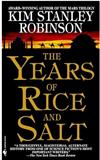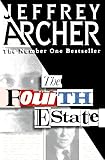
Creating a World Without Poverty
1 journaler for this copy...
'In the past, financial institutions always asked themselves, "Are the poor credit-worthy?" and always answered no. As a result the poor were simply ignored and left out of the financial system, as if they didn't exist. I reversed the question: "Are the banks people-worthy?" When I discovered they were not, I realized it was time to create a new type of bank.' -- Muhammad Yunus
' ... the bottom line for the social business is to operate without incurring losses while serving the people and the planet and in particular those among us who are most disadvantaged in the best possible manner.' -- Muhammad Yunus
When Professor Muhammad Yunus, founder of the Grameen Bank in Bangladesh and recipient of the Nobel Peace Prize, writes about eradicating poverty, then one sits up and takes notice.
Doling out vast sums of money to the Third World does not work. The money goes to line the pockets of the rich and corrupt, it leaks back to the donor country in the form of goods and services and consultancy fees, the projects financed rarely have a beneficial effect and usually impact negatively on those in their vicinity. The best that can be hoped for is trickle down, what Susan George likened to crumbs falling off the rich man's table.
Grameen Bank makes micro-loans, small sums of money usually with no collateral to the sort of people who cannot normally get finance or loans through conventional channels.
Micro-loans should not be confused with loan sharks, who loan small sums when money is tight, but demand repayment many times over with the threat of extreme violence if payments are not made on time.
The emphasis with micro-loans is helping those in need, not profiting from or exploiting that need.
The amount of money loaned can be very small, as little as $30 to $40 but this can be sufficient to help a woman set up a small roadside stall selling fresh fruit and vegetables. The rest is then up to her.
Grameen Bank is not a charity giving handouts to the poor. It is a business that grants loans, loans that have to be repaid with interest. It is not about alleviating poverty, but enhancing the quality of life of the poorest sectors of society and enabling individuals to explore their creative potential. Lots of little economic engines that not only improve the lot of the individual and their family, but also society as a whole. Looked at from this perspective, Grameen Bank is a social business engaged in social capitalism.
Professor Muhammad Yunus is now looking beyond micro-loans, and looking at what business big and small can do to help the poor, not with handouts but with projects and products beneficial to the poor. He gives many examples. In many ways he is following in the footsteps of Amory Lovins who has for many years been working on what he calls green capitalism. More lately William McDonough and Michael Braungart. That what Muhammad Yunus is promoting could be called social capitalism.
'As Grameen Bank became more and more deeply rooted in the social conditions of the poor in Bangladesh, it uncovered additional areas of economic imbalance and opportunity. In response, its mandate evolved and broadened.'
Muhammad Yunus could see the need to go beyond lending money to the poor and set up radical new social businesses. A chance meeting in Paris set him off in a whole new direction.
He was due to give a talk in Paris on micro-credit, and in what could almost be seen as an example of synchronicity and certainly serendipity, he was asked would he mind meeting Franck Riboud, chief executive and chairman of Groupe Danone, a huge French multinational best know for its yogurts and which also owns Evian water. When he said yes, a limousine was sent to pick him up and he found himself dining with Franck Riboud and several of his senior executives in a Parisian restaurant. Asked to explain micro-credit, which he did, he was surprised to find it was a subject they were already familiar with. He then asked, why did they wish to meet him?
Danone wished to expand into poorer markets. Muhammad Yunus suggested a joint venture in Bangladesh, Grameen Danone, to which not surprising Franck Riboud agreed, as it is always easier to expand into a new and emerging market through a name that is known and trusted than with an unknown name. What is all the more surprising is that Franck Riboud agreed to the conditions set which were that the aim of the company was to supply affordable nutrition to the poor of Bangladesh and that any profits made were to be ploughed back into the company. The deal was agreed there and then on a handshake.
Muhammad Yunus is a strange creature, he believes in globalisation and yet works with the poor. He believes that multinationals should be given tax breaks and other incentives and yet recognises the exploitation of labour and environment that takes place.
There are three types of businesses. Those that don't give a damn, are driven by rapacious greed. Many would put Coco-Cola, arms manufacturer BAE Systems, and St Modwen a property developer that specialises in destroying town centres and small businesses into this category. Those that try to minimise the harm they produce, though when push comes to shove, it is always the bottom line that counts and when you remove the public relations veneer of corporate social responsibility too often they resemble the first category, it is just that they are no so blatant, some would say honest, about their activities. A third category sets out to do positive good. A business is set up not to make a profit but to achieve a social aim. It is these business that Muhammad Yunus is interested in, what he calls social businesses. Grameen Bank would be classed as a social business.
We are multidimensional beings, why should therefore our companies not be multidimensional? This is good for us, not just that we do not suffer from the ills and dis benefits of traditional businesses, but that those who work within these businesses, their employees, do not have to shed their multidimensional personality at the company threshold and become a corporate suit, a company automaton.
A social business is just that a business, it employs people it produces goods and services it has customers and clients. There is though a significant difference, instead of being profit-driven it is cause-driven, it creates social benefits for those whose lives it touches.
A social business should not be confused with a non-government organisation or a charity. The aims and objectives may be the same, but a social business is a business. A charity does not have to recover its costs. The down side is a considerable amount of time has to be spent on fund raising. A social business is self-financing, it has to compete in and recover its costs from the market place. If it does not, it is no longer in business. Once a social business has recovered its costs, it is free to expand, to diversify, more people can benefit from what it has to offer.
This brings in another big difference. A profit-driven business will often generate a need. Do we need to drink a sweet fizzy drink? Look at Coca-Cola's marketing budget. A cause-driven business exists to satisfy a social need.
A social business may generate a surplus, but pays no dividend, though the original investors may be entitled to recoup their original investment. The surplus will be ploughed back into the business, resulting in lower prices, better servicer or wider availability so that more people may benefit from the social service its is delivering.
An example would be the supply of community wind turbines supplying low cost green energy to the local community. A surplus enables more communities to benefit. The company may diversify into roof-top solar energy.
Personally I am very queasy about thinking big business can ever be interested in helping out the poor. When corporations were first founded to handle projects bigger than conventional capitalists could handle, they were limited in scope and timescale, were strictly regulated as to pricing structure. Very quickly they outgrew their masters and now control the global economy. [see Globalisation - the role of corporations]
Can anyone imagine Coco-Cola being interested in social projects, showing concern for the environment or human rights? Oh they say they are, but as close scrutiny shows, this is mere greenwash. [see Belching out the Devil]
Even less likely, BAE Systems being concerned about human life, declining the chance of a multi-million pound contract if it means not paying a bribe. [see As Used on the Famous Nelson Mandela]
A question mark hangs over social businesses. There may be a few philanthropic individuals who wish to improve the lot of their fellows and set up in business to do just that, they need to turn around a profit else they can no longer remain in business. But too many businesses are jumping on the bandwagon, pretending when they are not.
Housing associations are often held up as examples of social businesses. Where they are owned and controlled by their tenants, this may be true, but the majority are in essence private businesses run as private businesses, where their product is social housing. Their housing stock is in poor condition, their tenants treated badly. They may not turn around a profit, but they are interested in paying themselves high wages, empire building. They are unaccountable, especially to their tenants and the local communities in which they operate, but play the social business card for tax breaks and government handouts. Housing associations are not interested in improving the living conditions of a sector of society with better quality housing. To them, social housing is simply a profitable market in which to operate.
Are the occupied factories in Argentina social enterprises? They are run by consensus by their workers, better run and more profitable than under their previous owners, provide employment, work cooperatively with other occupied factories, provide help to their local communities, for example a clothing factory providing free school uniforms.
Is Infinity Foods in Brighton a social enterprise? A workers cooperative that supplies quality wholesome foods, wherever and whenever locally sourced and organic, with minimal environmental impact.
Muhammad Yunus hints at multinational social businesses, gives water and sanitation as an example. If nothing else, there would be no accountability. Unless there are huge economies of scale to offset the lack of accountability, what advantage is there?
In 2006, myself and a Czech economist, attended a conference on water in London. There were people from the public sector from Brazil and India versus the private sector. The public sector emphasised the supply of water based on need, the poor paying less than the rich (the rich in effect subsidising the poor). The private sector claimed they were making huge investments, but on closer scrutiny, this investment was what they had paid to acquire public water companies, usually sold on the cheap, sales forced by World Bank and IMF structural programmes. The private sector were not adding infrastructure to supply poorer areas but were to supply hotels, golf course, the price to the poor had been hiked making it a significant part of their outlay. The public sector were happy to let the private structure build and maintain the infrastructure, but not take control. What was amazing, in a world where water tables are falling due to unsustainable water extraction, the public sector in India had managed to recharge their ground water and water tables were rising.
Why did Danone devote so much time and resources to Grameen Danone, it was an insignificant part of their global operations, and as it was a social business paying no dividends, the best they could hope for was to recover their original investment? We are all multidimensional beings, we all like a challenge. Maybe Danone are sufficiently forward looking that they see no future for traditional profit maximising companies.
Creating a World Without Poverty is currently only available in hardback. A paperback edition is due out January 2009.
Muhammad Yunus and Grameen Bank were awarded the Nobel Peace Price in 2006.
Also read
Muhammad Yunus, Banker to the Poor, PublicAffairs, 2003
Mark Thomas, As Used on the Famous Nelson Mandela, Ebury Press, 2006 [see BCID 6661110]
Mark Thomas, Belching out the Devil, Ebury Press, 2008 [see BCID 6695044]
William McDonough and Michael Braungart, Cradle to Cradle: Remaking the Way We Make Things, North Point Press, 2002
Paul Hawken, Amory B Lovins & L Hunter Lovins, Natural Capitalism, Earthscan, 1999
Ernst von Weizscker, Amory B Lovins and L Hunter Lovins, Factor Four: Doubling Wealth, Halving Resource Use, Earthscan, 1997
Alan Weisman, Gaviotas: A Village to Reinvent the World, Chelsea Green, 1998 [see BCID 6558565]
Lester R Brown, Plan B 2.0, Norton, 2006
http://www.earth-policy.org/Books/PB2/Contents.htm
Naomi Klein, No Logo, Flamingo, 2000
' ... the bottom line for the social business is to operate without incurring losses while serving the people and the planet and in particular those among us who are most disadvantaged in the best possible manner.' -- Muhammad Yunus
When Professor Muhammad Yunus, founder of the Grameen Bank in Bangladesh and recipient of the Nobel Peace Prize, writes about eradicating poverty, then one sits up and takes notice.
Doling out vast sums of money to the Third World does not work. The money goes to line the pockets of the rich and corrupt, it leaks back to the donor country in the form of goods and services and consultancy fees, the projects financed rarely have a beneficial effect and usually impact negatively on those in their vicinity. The best that can be hoped for is trickle down, what Susan George likened to crumbs falling off the rich man's table.
Grameen Bank makes micro-loans, small sums of money usually with no collateral to the sort of people who cannot normally get finance or loans through conventional channels.
Micro-loans should not be confused with loan sharks, who loan small sums when money is tight, but demand repayment many times over with the threat of extreme violence if payments are not made on time.
The emphasis with micro-loans is helping those in need, not profiting from or exploiting that need.
The amount of money loaned can be very small, as little as $30 to $40 but this can be sufficient to help a woman set up a small roadside stall selling fresh fruit and vegetables. The rest is then up to her.
Grameen Bank is not a charity giving handouts to the poor. It is a business that grants loans, loans that have to be repaid with interest. It is not about alleviating poverty, but enhancing the quality of life of the poorest sectors of society and enabling individuals to explore their creative potential. Lots of little economic engines that not only improve the lot of the individual and their family, but also society as a whole. Looked at from this perspective, Grameen Bank is a social business engaged in social capitalism.
Professor Muhammad Yunus is now looking beyond micro-loans, and looking at what business big and small can do to help the poor, not with handouts but with projects and products beneficial to the poor. He gives many examples. In many ways he is following in the footsteps of Amory Lovins who has for many years been working on what he calls green capitalism. More lately William McDonough and Michael Braungart. That what Muhammad Yunus is promoting could be called social capitalism.
'As Grameen Bank became more and more deeply rooted in the social conditions of the poor in Bangladesh, it uncovered additional areas of economic imbalance and opportunity. In response, its mandate evolved and broadened.'
Muhammad Yunus could see the need to go beyond lending money to the poor and set up radical new social businesses. A chance meeting in Paris set him off in a whole new direction.
He was due to give a talk in Paris on micro-credit, and in what could almost be seen as an example of synchronicity and certainly serendipity, he was asked would he mind meeting Franck Riboud, chief executive and chairman of Groupe Danone, a huge French multinational best know for its yogurts and which also owns Evian water. When he said yes, a limousine was sent to pick him up and he found himself dining with Franck Riboud and several of his senior executives in a Parisian restaurant. Asked to explain micro-credit, which he did, he was surprised to find it was a subject they were already familiar with. He then asked, why did they wish to meet him?
Danone wished to expand into poorer markets. Muhammad Yunus suggested a joint venture in Bangladesh, Grameen Danone, to which not surprising Franck Riboud agreed, as it is always easier to expand into a new and emerging market through a name that is known and trusted than with an unknown name. What is all the more surprising is that Franck Riboud agreed to the conditions set which were that the aim of the company was to supply affordable nutrition to the poor of Bangladesh and that any profits made were to be ploughed back into the company. The deal was agreed there and then on a handshake.
Muhammad Yunus is a strange creature, he believes in globalisation and yet works with the poor. He believes that multinationals should be given tax breaks and other incentives and yet recognises the exploitation of labour and environment that takes place.
There are three types of businesses. Those that don't give a damn, are driven by rapacious greed. Many would put Coco-Cola, arms manufacturer BAE Systems, and St Modwen a property developer that specialises in destroying town centres and small businesses into this category. Those that try to minimise the harm they produce, though when push comes to shove, it is always the bottom line that counts and when you remove the public relations veneer of corporate social responsibility too often they resemble the first category, it is just that they are no so blatant, some would say honest, about their activities. A third category sets out to do positive good. A business is set up not to make a profit but to achieve a social aim. It is these business that Muhammad Yunus is interested in, what he calls social businesses. Grameen Bank would be classed as a social business.
We are multidimensional beings, why should therefore our companies not be multidimensional? This is good for us, not just that we do not suffer from the ills and dis benefits of traditional businesses, but that those who work within these businesses, their employees, do not have to shed their multidimensional personality at the company threshold and become a corporate suit, a company automaton.
A social business is just that a business, it employs people it produces goods and services it has customers and clients. There is though a significant difference, instead of being profit-driven it is cause-driven, it creates social benefits for those whose lives it touches.
A social business should not be confused with a non-government organisation or a charity. The aims and objectives may be the same, but a social business is a business. A charity does not have to recover its costs. The down side is a considerable amount of time has to be spent on fund raising. A social business is self-financing, it has to compete in and recover its costs from the market place. If it does not, it is no longer in business. Once a social business has recovered its costs, it is free to expand, to diversify, more people can benefit from what it has to offer.
This brings in another big difference. A profit-driven business will often generate a need. Do we need to drink a sweet fizzy drink? Look at Coca-Cola's marketing budget. A cause-driven business exists to satisfy a social need.
A social business may generate a surplus, but pays no dividend, though the original investors may be entitled to recoup their original investment. The surplus will be ploughed back into the business, resulting in lower prices, better servicer or wider availability so that more people may benefit from the social service its is delivering.
An example would be the supply of community wind turbines supplying low cost green energy to the local community. A surplus enables more communities to benefit. The company may diversify into roof-top solar energy.
Personally I am very queasy about thinking big business can ever be interested in helping out the poor. When corporations were first founded to handle projects bigger than conventional capitalists could handle, they were limited in scope and timescale, were strictly regulated as to pricing structure. Very quickly they outgrew their masters and now control the global economy. [see Globalisation - the role of corporations]
Can anyone imagine Coco-Cola being interested in social projects, showing concern for the environment or human rights? Oh they say they are, but as close scrutiny shows, this is mere greenwash. [see Belching out the Devil]
Even less likely, BAE Systems being concerned about human life, declining the chance of a multi-million pound contract if it means not paying a bribe. [see As Used on the Famous Nelson Mandela]
A question mark hangs over social businesses. There may be a few philanthropic individuals who wish to improve the lot of their fellows and set up in business to do just that, they need to turn around a profit else they can no longer remain in business. But too many businesses are jumping on the bandwagon, pretending when they are not.
Housing associations are often held up as examples of social businesses. Where they are owned and controlled by their tenants, this may be true, but the majority are in essence private businesses run as private businesses, where their product is social housing. Their housing stock is in poor condition, their tenants treated badly. They may not turn around a profit, but they are interested in paying themselves high wages, empire building. They are unaccountable, especially to their tenants and the local communities in which they operate, but play the social business card for tax breaks and government handouts. Housing associations are not interested in improving the living conditions of a sector of society with better quality housing. To them, social housing is simply a profitable market in which to operate.
Are the occupied factories in Argentina social enterprises? They are run by consensus by their workers, better run and more profitable than under their previous owners, provide employment, work cooperatively with other occupied factories, provide help to their local communities, for example a clothing factory providing free school uniforms.
Is Infinity Foods in Brighton a social enterprise? A workers cooperative that supplies quality wholesome foods, wherever and whenever locally sourced and organic, with minimal environmental impact.
Muhammad Yunus hints at multinational social businesses, gives water and sanitation as an example. If nothing else, there would be no accountability. Unless there are huge economies of scale to offset the lack of accountability, what advantage is there?
In 2006, myself and a Czech economist, attended a conference on water in London. There were people from the public sector from Brazil and India versus the private sector. The public sector emphasised the supply of water based on need, the poor paying less than the rich (the rich in effect subsidising the poor). The private sector claimed they were making huge investments, but on closer scrutiny, this investment was what they had paid to acquire public water companies, usually sold on the cheap, sales forced by World Bank and IMF structural programmes. The private sector were not adding infrastructure to supply poorer areas but were to supply hotels, golf course, the price to the poor had been hiked making it a significant part of their outlay. The public sector were happy to let the private structure build and maintain the infrastructure, but not take control. What was amazing, in a world where water tables are falling due to unsustainable water extraction, the public sector in India had managed to recharge their ground water and water tables were rising.
Why did Danone devote so much time and resources to Grameen Danone, it was an insignificant part of their global operations, and as it was a social business paying no dividends, the best they could hope for was to recover their original investment? We are all multidimensional beings, we all like a challenge. Maybe Danone are sufficiently forward looking that they see no future for traditional profit maximising companies.
Creating a World Without Poverty is currently only available in hardback. A paperback edition is due out January 2009.
Muhammad Yunus and Grameen Bank were awarded the Nobel Peace Price in 2006.
Also read
Muhammad Yunus, Banker to the Poor, PublicAffairs, 2003
Mark Thomas, As Used on the Famous Nelson Mandela, Ebury Press, 2006 [see BCID 6661110]
Mark Thomas, Belching out the Devil, Ebury Press, 2008 [see BCID 6695044]
William McDonough and Michael Braungart, Cradle to Cradle: Remaking the Way We Make Things, North Point Press, 2002
Paul Hawken, Amory B Lovins & L Hunter Lovins, Natural Capitalism, Earthscan, 1999
Ernst von Weizscker, Amory B Lovins and L Hunter Lovins, Factor Four: Doubling Wealth, Halving Resource Use, Earthscan, 1997
Alan Weisman, Gaviotas: A Village to Reinvent the World, Chelsea Green, 1998 [see BCID 6558565]
Lester R Brown, Plan B 2.0, Norton, 2006
http://www.earth-policy.org/Books/PB2/Contents.htm
Naomi Klein, No Logo, Flamingo, 2000









